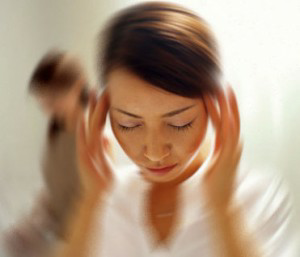Get the App
For Doctors
Login/Sign-up
Last Updated: Aug 29, 2019
BookMark
Report
Dizziness is the feeling of being lightheaded, woozy, or unbalanced. It affects the sensory organs, specifically eyes and ears. It can cause fainting. Dizziness is not a disease but a symptom of other disorders.
Vertigo and disequilibrium may cause a feeling of dizziness, but those two terms describe different symptoms. Vertigo is characterized by a feeling of spinning. Disequilibrium is a loss of balance or equilibrium. True dizziness is the feeling of lightheadedness or nearly fainting.
Dizziness is common. The underlying cause of dizziness is usually not serious. Occasional dizziness is nothing to worry about.
Seek medical attention if you have recurring bouts of dizziness with no apparent cause. Also seek immediate help if you experience sudden dizziness along with a head injury, a headache, neck ache, blurred vision, hearing loss, a loss of motor ability, a loss of consciousness, or chest pain. These could indicate serious issues.
What Causes Dizziness? - Common causes of dizziness include inner-ear disorders, medications, and alcohol.
Dizziness is often a result of vertigo. It can also be caused by a problem in the inner ear, where balance is regulated. The most common cause of vertigo and vertigo-related dizziness is benign paroxysmal positional vertigo (BPPV). This causes short-term dizziness when a person changes positions quickly?for instance, when sitting up in bed.
Dizziness and vertigo can also be caused by Meniere's disease (which causes fluid buildup in the ear), migraine, or acoustic neuroma, a benign growth on the nerve connecting the inner ear to the brain. Very rarely, vertigo could be caused by a stroke, brain hemorrhage, multiple sclerosis, or another neurological disorder.
Other causes of dizziness include:
- Sudden drop in blood pressure, as may occur upon standing suddenly
heart muscle disease
- Decrease in blood volume
- Neurological conditions
- Side effect from medications
- Anxiety disorders
- Anemia (low iron)
- Hypoglycemia (low blood sugar)
- Ear infection
- Dehydration
- Heat stroke
- Excessive exercise
- Motion sickness
Symptoms of dizziness include:
- Lightheadedness
- Vertigo (spinning motion)
- Unsteadiness
- Loss of balance
- Sensation of floating or swimming
- Heavy-headedness
- Spaciness
Sometimes dizziness is accompanied by clamminess, nausea, vomiting, paleness, or losing consciousness.
Feel free to consult further for any assistance.
Dr. Surbhi Agrawal
Consultant Physician, Diabetologist and Wellness Expert
Vertigo and disequilibrium may cause a feeling of dizziness, but those two terms describe different symptoms. Vertigo is characterized by a feeling of spinning. Disequilibrium is a loss of balance or equilibrium. True dizziness is the feeling of lightheadedness or nearly fainting.
Dizziness is common. The underlying cause of dizziness is usually not serious. Occasional dizziness is nothing to worry about.
Seek medical attention if you have recurring bouts of dizziness with no apparent cause. Also seek immediate help if you experience sudden dizziness along with a head injury, a headache, neck ache, blurred vision, hearing loss, a loss of motor ability, a loss of consciousness, or chest pain. These could indicate serious issues.
What Causes Dizziness? - Common causes of dizziness include inner-ear disorders, medications, and alcohol.
Dizziness is often a result of vertigo. It can also be caused by a problem in the inner ear, where balance is regulated. The most common cause of vertigo and vertigo-related dizziness is benign paroxysmal positional vertigo (BPPV). This causes short-term dizziness when a person changes positions quickly?for instance, when sitting up in bed.
Dizziness and vertigo can also be caused by Meniere's disease (which causes fluid buildup in the ear), migraine, or acoustic neuroma, a benign growth on the nerve connecting the inner ear to the brain. Very rarely, vertigo could be caused by a stroke, brain hemorrhage, multiple sclerosis, or another neurological disorder.
Other causes of dizziness include:
- Sudden drop in blood pressure, as may occur upon standing suddenly
heart muscle disease
- Decrease in blood volume
- Neurological conditions
- Side effect from medications
- Anxiety disorders
- Anemia (low iron)
- Hypoglycemia (low blood sugar)
- Ear infection
- Dehydration
- Heat stroke
- Excessive exercise
- Motion sickness
Symptoms of dizziness include:
- Lightheadedness
- Vertigo (spinning motion)
- Unsteadiness
- Loss of balance
- Sensation of floating or swimming
- Heavy-headedness
- Spaciness
Sometimes dizziness is accompanied by clamminess, nausea, vomiting, paleness, or losing consciousness.
Feel free to consult further for any assistance.
Dr. Surbhi Agrawal
Consultant Physician, Diabetologist and Wellness Expert



+1.svg)
